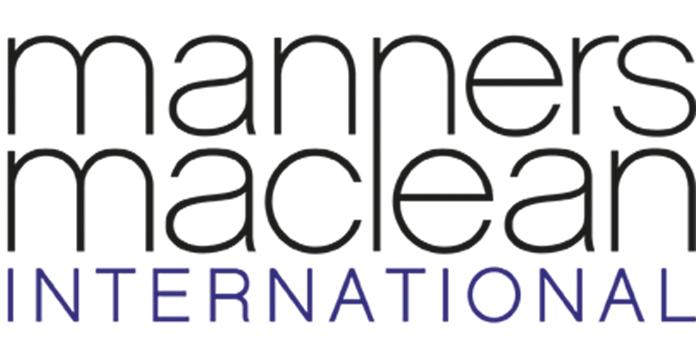Addressing diversity imbalance: A systematic, business-led approach
The business case for a positive Diversity, Equity & Inclusion (DE&I) agenda is stronger than ever, with recent research showing that businesses who are taking bold action are more likely to experience above average profitability than their competitors sometimes, by as much as 30 percent. As a result, DE&I is on almost every business agenda, however few are getting the desired results.
The dynamics around DE&I go much deeper with, for example, stakeholders interrogating a company’s purpose and values far more closely and a visible commitment to DE&I is likely to strengthen a company’s global image. In addition, it is a critical differentiator for businesses as employees need to feel and perceive equity and fairness of opportunity in their workplace.
However, despite these major benefits and greater focus upon DE&I, progress on representation has been slow. Moreover, research suggests that the social and economic challenges of the last few years could have created a situation where businesses have either stalled in their efforts or even gone backwards.
Success requires bold action
The successful application of a DE&I strategy requires a systematic, business-led approach and bold, concerted action on inclusion to make progress. Put simply, a business must be more proactive.
If you’re looking to move to a more proactive recruiting model, talent pipelines must be a critical part of your strategy. Ongoing talent pipelining initiatives provide a solution to almost immediately, positively address the diversity imbalance in your organisation. This then allows you to, not only, focus on your immediate hiring needs, but also longer-term business transformation, bridging knowledge gaps, succession planning and employee attrition, whilst underpinning your DE&I strategy.
Although, whilst many businesses recognise the importance of Talent Pipelining for continuity and business success, data shows that despite this understanding, 60% of companies say they do not have a program in place and, of those that do, only 14% say that their program operates successfully.
So what is Talent Pipelining?
A talent pipeline is defined as a ready pool of potential candidates who are qualified and prepared to step up and fill relevant key roles within the business as soon as they fall vacant.
In brief, it’s a “relationship-based” talent strategy whereby, instead of searching for candidates that fit an immediate need, you build relationships with passive talent for future opportunities.
Key Benefits of talent pipelining
1. Leverage to increased diversity
Talent pipelining is the strategic approach that companies can leverage to increase diversity with 62% of businesses in a recent report, said that talent pipelining ranked as the number one priority for talent teams in order to address diversity.
56% of organisations are currently struggling to find candidates that fit their diversity requirements – pipelines give them the capacity to identify diverse prospects and build a relationship with them.
2. Access to Highly specialised networks
The key benefit for any business is the ability to build effective networks of highly engaged candidates that offer the skills and specialist expertise to immediately fulfil a role within the business.
Talent pipelining allows you to identify and react effectively to your recruitment needs well in advance, so you have a clear idea of the volume and type of candidates needed.
3. Engage passive candidates
The perfect candidate is rarely available at the precise moment that you have a requirement. Recent research suggests that although 75% of eligible candidates are not looking for a job, 90% of those are ‘passive’ as opposed to ‘active’ candidates’.
Talent pipelines let you team identify and build a relationship with these candidates without pushing specific job openings. Over time, you can introduce the idea of roles that could be a good fit and see if they resonate – a far more effective method of passive engagement.
4. Improved candidate experience
It is an entirely candidate centric process. It’s about building strong relationships and engaging candidates on their terms and giving them the information they need to make an informed decision.
It allows the organisation to fully communicate the culture, the values, and the purpose of the business throughout the process.
5. Less brand dependent
Many companies have underdeveloped employer brands or work in unfavourable locations. When hiring “reactively”, this can represent a significant problem. There’s no time for businesses to sell candidates on the role or company, there’s an immediate need and recruiters need to move fast.
By operating a pipeline model, companies / recruiters give themselves more time to “sell” candidates on their organisation and overcome limitations.
6. Reduced financial impact
The cost of hiring a candidate can be expensive, with research suggesting that the overall cost of hire can be as much as 2 times the salary. Making the wrong hire is even more expensive!
Talent Pipelining allows you to better manage those costs and reduce the risk of getting wrong.
Why Apply Talent Pipelining?
Aside of these benefits Talent Pipelining a strategic approach which should be thought of as a development process, rather than a replacement process.
When done well, it should not only focus on replacing people but also on:
- Developing internal talent
- Building a culture where diversity, equity and fairness of opportunity is evident, removing unconscious bias from every process
- Recognising the importance of identifying critical roles across the business at all levels, ensuring the plan is connected to the overall business strategy and a solid understanding of the market
- Minimising the uncertainty that occurs when leaders leave without an identified replacement
- Avoiding this uncertainty cascading to the rest of the business, resulting in further attrition.
The key to a successful program is that a business needs to be ready. You have to plan well in advance, understand your organisation’s direction and growth plans and what is needed to support that.
At Manners Maclean we believe it’s our responsibility to contribute to shaping businesses of the future by providing our clients with access to the best candidates irrespective of gender, race, sexuality, disability or socioeconomic background.
STANDOUT is a dedicated program, designed by Manners Maclean in 2012, that provides specialist leadership search and selection services focused on addressing diversity balance.
This program provides proven solutions to very typical problems faced in the effective reach, engagement and hiring of diverse candidates. This program sets us apart.
We partner with businesses to provide insights to guide their strategy and implement diversity initiatives, across functions and geographies, reaching out to the best talent available that is fully representative.
We specialise in providing global talent solutions for organisations in Consumer-Packaged Goods, Luxury Goods and Consumer Healthcare sectors and with 200+ years of combined experience, our consultants have an unrivalled level of insight, industry and client knowledge, allowing us to add significant value to our client’s senior level hiring and talent planning strategies.




